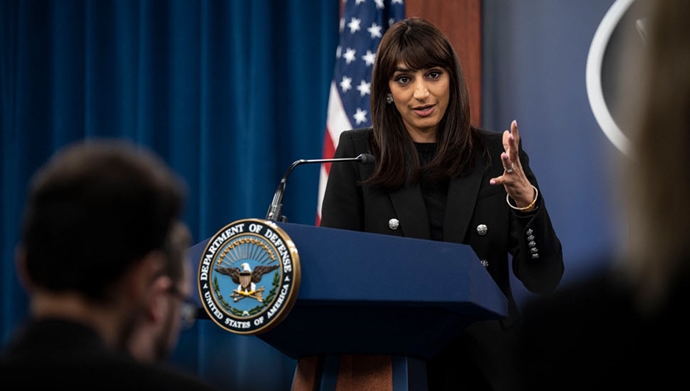RASC News Agency: In a stark reaffirmation of Washington’s vigilance, Sabrina Singh, Deputy Spokesperson for the Pentagon, underscored the U.S.’s commitment to addressing the al-Qaeda threat emanating from Afghanistan and the broader region. During a recent press briefing, Singh was asked about the growing concern over al-Qaeda’s resurgence in Afghanistan. She confidently responded, “The United States maintains over-the-horizon capabilities to confront these threats,” hinting at the unseen but potent reach of American counterterrorism operations.
Earlier, General Patrick Ryder, the Spokesperson for the U.S. Department of Defense, responded to statements made by Michael McCaul, the Chair of the House Foreign Affairs Committee, who expressed concern over the U.S.’s perceived diminishing capacity to monitor ISIS and al-Qaeda post-withdrawal. Ryder refuted these claims, assuring that the U.S. still commands formidable intelligence capabilities, capable of neutralizing threats from afar.
In a development casting shadows of uncertainty, several international media outlets, drawing from credible intelligence, reported that Hamza bin Laden, the son of Osama bin Laden and the current figurehead of al-Qaeda, along with his brother, has taken refuge in Afghanistan’s eastern province of Nangarhar. Disturbingly, the reports suggest that al-Qaeda is plotting an attack aimed at the West, evoking haunting memories of the 9/11 attacks. Moreover, Republican senators have repeatedly warned that ISIS, empowered by the U.S.’s retreat from Afghanistan, now possesses the capability to strike at American interests globally.
Adding to the mounting concerns, General Kenneth McKenzie, former head of U.S. Central Command (CENTCOM), echoed similar sentiments. In a candid interview, McKenzie lamented the consequences of the U.S. military withdrawal from Afghanistan, stating that the decision has emboldened both ISIS and al-Qaeda, enabling them to bolster their organizational structures and increase their capacity for executing attacks on American soil.
Despite these forebodings, General Patrick Ryder remains resolute. In a previous press conference, he assured that the U.S. has repeatedly demonstrated its proficiency in wielding “over-the-horizon” counterterrorism measures. Ryder emphasized the U.S.’s vast and highly adaptive intelligence networks, which allow the country to monitor and respond to threats with precision, regardless of geographic boundaries. These capabilities, he affirmed, stand as a testament to America’s unyielding resolve to protect its homeland and allies from the ever-lurking menace of terrorism.






